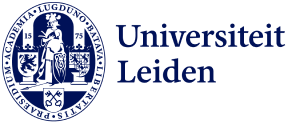About this minor
This joint minor is offered in collaboration with Leiden University and Erasmus University Rotterdam. Education may take place at several locations.
This course offers students both a conceptual and a practical introduction to the increasingly complex issues involved with authenticity research and art crime, covering relevant topics and methods in art history, provenance research, legislation, the art market and possibilities of physical and chemical analysis in an art historical context.
The course gives an overview of the philosophical, theoretical and practical perspectives relevant for authenticity research. The materials used in the artworks offer a unique insight into the making of art, covering the entire lifecycle of an object. Raw materials, their geographic and chronological origin, artist’s working techniques, material decay, restoration treatments and re-use and recycling of art objects are all part of the artwork lifecycle. Understanding these aspects is key to understanding the artwork’s biography, its provenance and, ultimately, the artwork’s authenticity. Subsequently, the students will receive an introduction into current methods and strategies to detect forgeries in the field of both archaeological and historical objects based on concrete case studies. Furthermore, this Minor will consider legal and ethical standards for the art market. Of specific importance in this regard are standards surrounding the former history of artifacts in order to prove or establish that the artifacts at stake were not looted or forged in the past. Notions that, on the basis of case examples, will be introduced are lawful ownership, contested cultural objects, due diligence standards and liability for forging documentation of artifacts.
Learning outcomes
Students who have followed this minor will be able to:
- analyze the challenges presented by potential forgeries by interpreting different sources;
- gain insight into the dynamics of the art market;
- formulate an interdisciplinary problem definition, synthesizing monodisciplinary perspectives on the problems taken from art history, law, cultural economics, criminology and material science;
- apply the fundamentals of transdisciplinarity relevant to the project;
- interpret normativity and a variety of interests from different stakeholders while navigating uncertainty and complexity in an open learning environment; and
- reflect on their academic, theoretical, practical and (intra)personal experiences and biases, both as a group and individually.
Good to know
Make sure to register to this joint-minor. After the registration is closed you cannot change this anymore.
Beside an on time registration via eduXchange, please provide a 300-word motivation (before the deadline of registration) and a significant achievement inside or outside of academia, on why you would like to take part in the Minor, how it fits within your current study program and/or will be helpful for your future career plans and send it to MinorAAC-MSE@tudelft.nl.
For questions regarding this selection process, you can contact MinorAAC-MSE@tudelft.nl.
Student at Leiden University, TU Delft or Erasmus University Rotterdam?
Check the eligibility matrix to see if your bachelor’s degree programme offers access to this and other minors at https://www.tudelft.nl/minor.
Student at another educational institution?
External students cannot register via EduXchange. Interested in this minor, read the whole registration procedure at https://www.tudelft.nl/minor.
For information about the courses, visit the TU Delft study guide.
This joint minor is offered in collaboration with Leiden University and/or Erasmus University Rotterdam. This means education can take place in multiple locations. Want to know more about joint minors? Visit https://www.leiden-delft-erasmus.nl/en/education/minors
Teaching method and examination
The minor will consist of a series of lectures and workshops at the three universities. This will teach the students the theoretical knowledge they will need to analyze and understand real-life cases. Additionally, during the interactive workshops, this knowledge will be implemented in real-life situations. For instance, by going to the TU Delft laboratories, the students will see how technical research is done and will be invited to engage with certain techniques themselves. Furthermore, there will be field trips. The examination will vary between the separate courses.
Check the detailed overview of courses, learning activities and study load at https://www.studyguide.tudelft.nl/
Additional information
- More infoMinorpage on website of Delft University of Technology
- Contact a coordinator
- CreditsECTS 15
- Levelbachelor
- Selection minorYes


